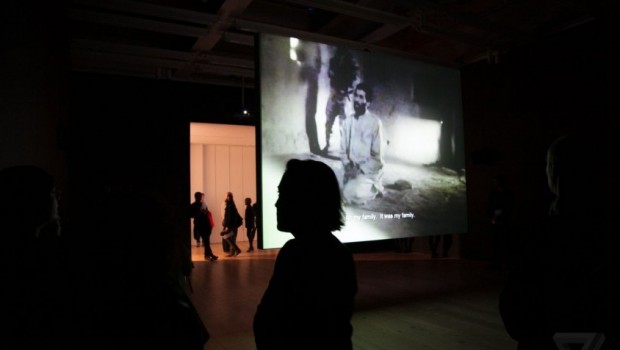The Most Fragile Objects
Greg Walklin
The Most Fragile Objects by Alberto Chimal, English translation by George Henson
“To need to dominate others,” wrote Fernando Pessoa, “is to need others. The commander is the dependent.” It’s doubtful that Pessoa, who may have died a virgin, was thinking in terms of sex when he wrote those words in The Book of Disquiet, but it applies as much to the bedroom—where most of the domination in Alberto Chimal’s novel The Most Fragile Objects takes place—as anywhere else. A relationship so predicated on the need to dominate, to force someone to submit, is itself a form of weakness, Pessoa and Chimal understood; it’s an inability to get on (or to get turned on) without the abjection of someone else.
The Most Fragile Objects explores two characters with a fundamental need—or perhaps better put, a perversion—to dominate: Marlene, who has imprisoned a young woman, Yuyis, in her home, leaving her naked most of the day and often compelling her to star in pornography; and Latour, who keeps a man he names Mundo in a submissive, dog-like state. Both Marlene and Latour enjoy sexual pleasure from their slaves, in their own twisted ways, although it seems only Mundo has truly consented to such a relationship. Both stories are frequently disturbing, sickening, and shocking, which is exactly what Chimal is intending. The author’s choice to portray the master/slave relationship in the homosexual context reveals that he is not dissecting the power struggles of males and females, but the inner need to dominate, that inner dependency—present in both Marlene and Latour—that drives their sex.
Of course, to say the book was just about sex would be to ignore all the obvious subtext, and how Chimal does not present it the least bit erotically, but in a matter-of-fact style (in the opening scene, for example, the man having sex with Yuyis as an “automaton” and is compared to “an inflatable doll.”) Sex, often a metaphor, speaks of deep and complex human desires and compulsions.
Marlene, for her part, seems deeply wounded and hurt, and takes it out in such a vicious way against Yuyis—beating her for such petty things as getting lines wrong, and always taunting her to leave the house (when she is still naked, and denied clothes); she also constantly emotional manipulates the girl. One of Marlene’s other tactics is to bestow constant gifts on Yuyis, but it doesn’t work: “[A]ll of them remind her [Yuyis] that her position is special: that, despite all the gifts and caresses Marlene provides, she is still a prisoner.”
On the other hand, Latour and Mundo have a measured, careful dynamic to their sex:
When he wants to (almost always in the morning, although sometimes at other times) Latour goes to look for Mundo wherever he is, puts on his leash, and takes him to one of the studios. Nothing can be heard, of course, as they both advance, and just as Latour doesn’t speak, Mundo doesn’t either, knowing what will happen and excited from the knowledge of the task to come: a clear affirmation of his devotion and obedience.
To pull off their slave relationship, they have ostensibly faked a kidnapping, although it seems dubious that Mundo’s family believes this anymore.
The two stories set up quite the contrast—a clear crime and exploitation by Marlene, and something consensual between Latour and Mundo. The issue of consent, long a sort of keystone of moral philosophy, divides these stories. Yet Chimal is too nuanced a character creator to be black-and-white. As the book progresses, it is sometimes the sickening relationship of Marlene and Yuyis that seems to engender, even beneath the horror, some elements of actual feeling, while Mundo and Latour have more of a sterile existence (one detail about Latour revealed later on the book especially points to this). In other words, if there are deep, complex feelings to be found in these relationships, it’s in the Stockholm Syndrome going on between the women, as opposed to the stilted, impersonal fetish between the men.
Chimal has written in numerous different genres, and his novel La torre y el jardín was shortlisted for the Romulo Gallegos Award in 2013. The Most Fragile Objects is the first of Chimal’s novels to be translated into English. His writing is as lucid as it is nuanced, the sentences crisp. In a somewhat unusual move, George Henson, the English translator, has included a glossary at the beginning of the book for a variety of Spanish phrases—most maledictions or vulgarities—that he left in Spanish, in an effort to avoid “equivalence” (that is, a cultural harmfulness created when making translated works too literally translated, or too familiar). The Spanish words are also not italicized to avoid “othering” the text. The translation succeeds: the glossary is not terribly burdensome if you aren’t familiar with all of the phrases, and it always keep the novel in its proper milieu. The book, Henson says, “is written in Mexican.”
It is also not a book written in a simple, straightforward way. Elements of both the two main tales—which do eventually intersect in what is really the damaged heart of the book, but to say more would spoil things—may or may not be true; it seems that Marlene is not quite the successful pornographer she presents herself to be, for example. There are certainly layers of fantasy to the story that Chimal purposefully leaves tangled, identities that must be conjectured. It’s a sly move on Chimal’s part that the kidnapping is one layer of the Latour/Mundo fantasy realm, while in Marlene’s case—well, perhaps—it is no game. This is indeed the slipperiest of books.
The Most Fragile Objects emerges as an arresting portrait of perversion, of the disturbing, but longstanding human practice to exploit, of how pleasure and pain are not always opposites. One need to look no further than social media, or the current American political climate, to see such practices occurring regularly. There is redemption here, ultimately, stuck right in its middle, but it comes at a high price for the characters. Nothing in Chimal’s book is for the faint-hearted —but then again, neither is the real world.
 Greg Walklin is an attorney and writer living in Lincoln, Nebraska. His book reviews have appeared in The Millions, Necessary Fiction, The Colorado Review, and the Lincoln Journal-Star, among other publications. He has also published several pieces of short fiction. Twitter: @gwalklin
Greg Walklin is an attorney and writer living in Lincoln, Nebraska. His book reviews have appeared in The Millions, Necessary Fiction, The Colorado Review, and the Lincoln Journal-Star, among other publications. He has also published several pieces of short fiction. Twitter: @gwalklin
©Literal Publishing
Posted: April 6, 2020 at 8:32 pm










